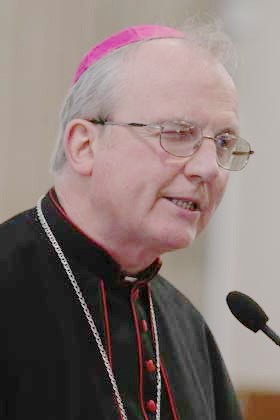 THOSE who lived through the Troubles will never forget its traumatic events, the Bishop of Derry has said during a service to mark the anniversary of the Droppin’ Well bomb in Ballykelly.
THOSE who lived through the Troubles will never forget its traumatic events, the Bishop of Derry has said during a service to mark the anniversary of the Droppin’ Well bomb in Ballykelly.
Eleven British soldiers and six civilians died when the INLA blew up the disco in 1982.
“For older people of my vintage it can actually be hard to imagine that a very large proportion – about one third – of our population is under twenty-four years of age and has little or no memory of the Troubles at all,” said Bishop Donal McKeown.
“In the lives of those who were involved in any way at the Droppin’ Well bomb, the traumatic events of those days will be seared into their memory.
“But for nearly half our population, the event that we remember today occurred before they were even born. So, for the bulk of our 1.8m people, what is important about 6 December 1982 is not so much what happened, as how we choose to remember what happened.
“That is why today is not just remembering a past event and lost lives. How we remember those events is a significant factor in how we help our younger people to envision the future. In our still contested political space, commemorations like this can be not so much sentimental as seminal.”
The bishop went on: The stories that we tell about the past in this country have tended to be characterised by tales of victimhood and heroic resistance.
“It was Chesterton in The Ballad of the White Horse, who suggested that we are all mad, because “all their wars are merry/ And all their songs are sad.
“In this, the decade of centenaries, we will hear many calls to commemorate heroic resistance or generous sacrifice. And it is important that we remember those whose lives and life chances were snuffed out by the brutality of others. But any Christian religious service can never be about promoting a selective, myopic recalling of the past, allowing ourselves to be used to serve other current political or personal agendas.”
The bishop said there was now a battle for truth after the conflict; but that both sides needed to move on.
“While the war is over, the conflict is alive and well. The unspoken struggle is about whose narrative can be imposed – the simplistic myth of the heroic resistance to occupation and colonialism or the equally inaccurate myth of the thin blue line against the barbarous terrorist assault,” said Bishop McKeown.
“All struggles are about power. In that struggle, everything can be used as a weapon – culture, religion and perceived allegiances. Often religion has been happy to let itself be used as a weapon in the armoury.
“Can we look at our different narratives about Ballykelly and ask whether our stories help or hinder the search for a better future for our young people? Can we help our elected leaders to move beyond their thraldom to barren narratives about the goodies and the baddies?
“Can we encourage them to be honest about the complexities of the past and tell them that we don’t all want to crush and smash the other? Can we help them prioritise being at peace with a truer truth about the past rather than promoting a destructive story that rejoices in heroic suffering and glorious victory? Because of the victory of Jesus we do not need to be victorious, only to speak the truth for it is that alone that will set us free.”
Tags:





